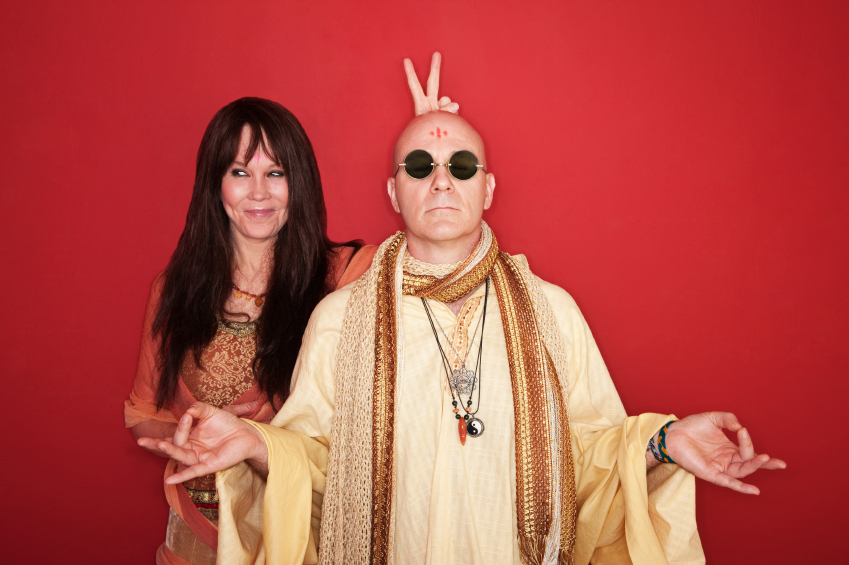I ran into someone a while back who found out I was going to AA meetings and proceeded to lecture me about how it was just a cult. I don’t see that at all. How would you respond?”
It’s a common misconception. AA’s a culture, not a cult.
The term cult is meant to disparage a sect or group — usually but not always religious in nature — as unhealthy and exploitative of its members. Cults normally feature unquestioned leadership and a formal dogma that must be obeyed.
That sure isn’t AA. Read the Traditions. You get the feeling AA was designed to prevent culthood. It’s inherently disorganized, and in many respects leaderless. One longtime member explained it to me: “How AA works? That’s our secret: it doesn’t work.”
A culture, on the other hand, is simply the set of shared values, attitudes, goals, and practices that characterize a group. It’s often used to describe subpopulations with common features — the youth culture, the corporate culture… the drug culture.
The Twelve Step fellowships represent a culture of recovery. Not the only one, but perhaps the most significant.
Why is a culture of recovery necessary? Because as addiction progresses, the addict or alcoholic grows away from the larger culture from whence they came. It’s an effect of a progressive disease. Addiction — substance use — becomes what psychologists call a ‘central organizing principle’ for the addict’s life. The change is more obvious with users of illegal drugs, but heavy drinkers adapt, as well.
‘Using’ subcultures develop their own terminology and accepted practices; perhaps even ceremonies and a dress code. That’s why you can drop a 16 year old drug user in a new school in a different state, and by noon he’ll have a pretty good idea where to score some drugs.
If at some point, motivated by misery, the addict commits to recovery, all that must change. It’s just too hard to get ‘clean and sober’ hanging around active addicts. So the person in recovery seeks out the society of others in similar circumstances. Their society replaces what’s no longer available, and another culture is born.
This recovery culture can seem pretty strange to those not familiar with it. It’s the strangeness that leads to the comparison. Cults seem strange, too.
But the comparison doesn’t hold. For all their imperfections, the 12 Step groups are anything but cult-like. That’s their strength.














I agree AA is disorganized to some extent, but its also micromanaged at the group level I think. All the groups may be slightly different. This is why people are often told to try different groups. I do think there is a defined set of ideas, and while one doesnt have to subscribe to each one in order to attend AA, or NA Ive found there is pressure put upon members to stay silent and not voice disapproval, not share any dissent. So it gives the illusion everyone agrees. Also I feel there is a lot of manipulation and passive aggressive behaviors in AA and NA. Ive been to both. This is part of the pressure cooker environment and why I would tilt towards the cult side if asked. Ive seen many people myself included decide they are now capable of leaving AA because the sub culture is no longer needed, or people who have a relatively healthy family life and feel AA is too time demanding, be told they will surely fail if they dont keep coming back, and tales of people who were never seen again, or showed up years later in relapse (who’s to say they wouldnt have relapsed if they stayed in AA?) It doesnt have a high success rate if we are honest. Ive come to the conclusion it is important for someone in recovery to build a healthy new life, but I feel bypassing the subculture of AA may be the healthiest way. Focusing on normal activities, getting involved in social groups, taking a class, joining a gym, going to church speed up the recovery process. AA left me feeling segregated and different than society, and people around me. Again, this could be xonsidered a cult like effect. Many times I was told no one else would understand me except someone in recovery. what I found was, this was not true. But the belief made me feel safe in AA and made me fear leaving. A certain percentage of people may not fit into outside social structures and need AA or NA for a time, but becoming addicted to it is also a risk. The goal should be to leave AA, but know its there if you ever need to go back. In this regard, I find some of the newer support groups like Smart Recovery to have a better concept. They offer tools to help you gain independence on your own, use the support group also as long as you need, then fly from the nest. AA keeps people in the nest and their growth is stunted in my opinion.
There are times in the past when I thought AA a cult. However, I’m going on near two years sober now and continue to attend meetings, chairing some, taking meetings to others who need it. I didn’t understand that a sober life was possible and what helping others get sobriety really meant. I’m going to stick with the cult.